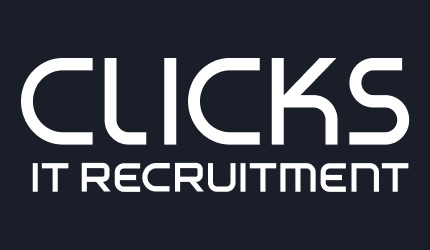This week’s Wellness Matters blog has been kindly provided by our guest blogger Dr. Natalie Flatt, Ph.D, co-founder of ConnectPsych Services.
As the number of COVID-19 cases is once again on the rise in Victoria and other parts of the country, so too is the mental health impact on individuals, families and communities. It’s understandable that, in this unprecedented time, people may be feeling fearful, worried, anxious, disappointed, overwhelmed and helpless. The 24-hour news feeds and media coverage regarding the spread of the virus, the health of loved ones, financial concerns and the ever-changing ability to take part in community and social spaces is having a direct impact on mental health. Adding to this, there is a sharp rise in pre-existing mental health challenges becoming apparent due to the stringent rules of self-isolation.
“This Too Will Pass”
Try to see this unprecedented time as unique and different. It’s not only you who is feeling negative and disempowered emotions. Creating a list of what is in my control and what is out of my control makes it easier to accept the current situation. Use positive language and self-talk which will elicit positive emotions; in turn creating positive behaviour. Your greatest power is your perspective.
Manage your exposure to media coverage
This can increase feelings of fear and anxiety not to mention that media at present is unregulated and sensationalised. Be mindful of sources of information and ensure you are accessing reputable and accurate information and research.
Rise and shine
Aim to get up on weekdays at your usual time. If you had a long commute, use this ‘extra time’ to meditate, exercise, spend time with the kids or prepare the dinner.
Dress as if you are going to leave the house
While it’s tempting to work away in PJ’s, research has shown it beneficial for individuals to get ready for the day the same way they would if they were heading into the office. This simple ritual will put your mind in ‘work mode’ along with looking presentable for those impromptu video meetings.
Make sure you have created the ultimate workstation
Make sure that your workplace set up is still suitable and adjust what has not worked. This workstation should only be used for teleconference, emails, phone calls and projects. It should be free from distractions, be close to natural light for vitamin D, energy and improved mood. Make your space a stress-free zone of quiet and solitude where you can concentrate (if you don’t have a separate room, find an area with minimum traffic flow or a corner of a room off from the main area). Studies also show that a delicate blend of soft music combined with soothing nature sounds (ocean, rain or fire crackling) activates the calming part of your brain which assist in higher concentration.
Break it down
Especially for those juggling parenting, the Pomodoro Technique is making a comeback. The technique encourages employees to work with the time they have-rather than against it. Using this method, you break your workday into 25-minute chunks separated by fine minute breaks. Obviously, this will not work when in online meetings however is a great technique to use for those days where document content needs to be written. Take a longer break of about 15 to 20 minutes.
Switch off
It’s important to protect your boundaries and clock off at a reasonable time. Make a to do list for the next day’s work, attach it to your office ‘desk’ and walk away to relax and recharge those batteries. After work hours, enjoy other areas of your home: watching a good movie, reading a book, or cooking a fun meal.
The importance of checking in with your team and friends
Research provides evidence of the significance of connection through epidemics. Make plans to e-meet on a regular basis and share creative ways you’ve adjusted to the new situation. Everything takes proactive effort. Call your colleagues and friend/family frequently just to say hi and see how they’re doing. Let them know you still care about them even though you’re not physically working in the same location. Further, follow-up notes/actions/minutes and decisions from meetings held can assist with solid comprehension for future tasks and also provide clarity to any potential miscommunication.
Virtual lunches
You can still keep those lunch dates with that colleague or group of colleagues you had. Grab some lunch and go outside. A bit of sunshine and a laugh will go far.
Actively manage your wellbeing
by maintaining routines where possible, staying physically active (at least 30 min per day), eating nutritious foods high in protein, vitamin B, C and E and seeking additional online positive psychology and relaxation techniques such as mindfulness meditation. Headspace or Smiling Mind are great tools to investigate for ‘taking time out and being present’ moments.
‘I like to move it move it’
Exercise is a must to release those feel good chemicals in the brain and increase problem solving. There are many online classes such as yoga, HIIT, spin or strength-based training. Not only does exercise keep blood, glucose and oxygen levels high, feeding the brain, it releases endorphins into the body giving your mood a boost and increase your motivation and self-confidence.
Declutter
Ohh the benefits; creating a higher sense of confidence, energy, mindfulness and providing a sense of feeling light and free. This in turn allows for not only more room but for a clearer mind.
Avoid cabin fever
Make sure you get outside as much as possible with gardening or walking around the block. Research exhibits that spending time in nature lowers stress, helps you relax and clears your mind.
Friday night ‘socialising’
‘The new normal’ is to take advantage of social technology! Use Facetime, Facebook or Skype with friends and family members so you continually feel connected and continue to socialise over a ‘beverage’ or take away dinner and catch up on the week that was.
Appreciate your family time
Engage in quality time; taking family walks, playing games, enjoying each other’s company and overall being present. This unprecedented time can really be a silver lining.
About the author
Dr. Natalie Flatt Ph.D is co-founder of ConnectPsych Services. Natalie has extensive experience in Solution-Focussed Cognitive Behavioural presentation and interventions to assist with anxiety, resilience, stress management, relationships, workplace conflict and compassion fatigue. Her therapeutic work offers practical, evidence-based solutions to assist professionals to overcome a wide variety of difficulties to ensure ongoing emotional resilience, wellbeing, and improved self-confidence; resulting in higher work life satisfaction and productivity.
At Connect Psych we are all about YOU, we bring the therapy to YOU in the comfort of YOUR chosen environment, at the time of YOUR choice and on a communication platform of YOUR choice (voice, video, live chat). The Connect Psych platform cleverly matches you with a registered therapist who specialises in your challenges; eliminating time and disappointing sessions with other therapists.
Psych can support both teams and managers here.









